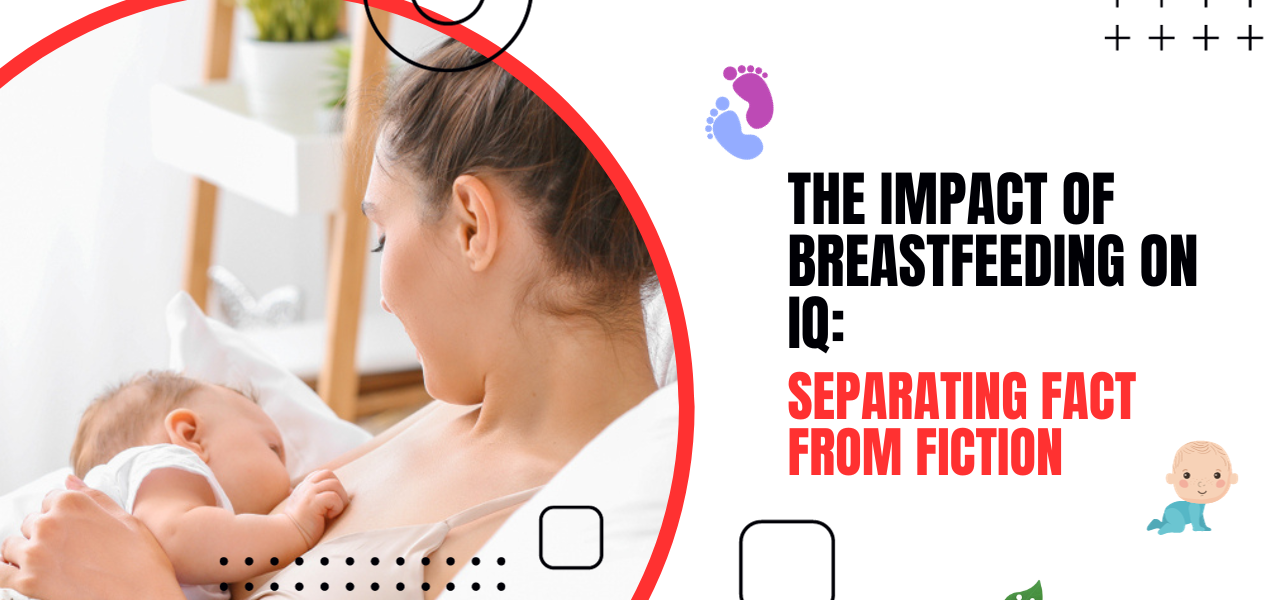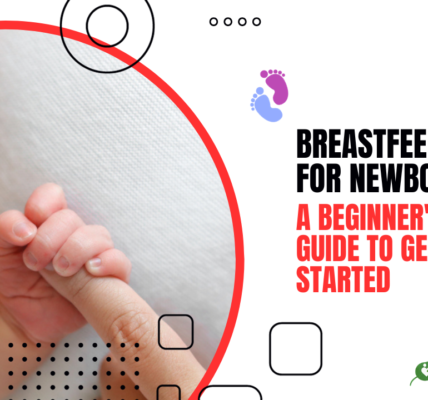The Impact of Breastfeeding on IQ: Separating Fact from Fiction
In the realm of parenting, there’s no shortage of advice and opinions on what’s best for your child. One hot topic of discussion is the impact of breastfeeding on a child’s IQ. Does breastfeeding really make a difference in a child’s cognitive development? In this comprehensive guide, we’ll explore the research, discuss relevant entities, and provide you with evidence-based insights to help you make an informed decision about breastfeeding and its potential effects on your child’s intelligence.
The Breastfeeding and IQ Connection
Unraveling the Myths
Myth: Breastfed babies are guaranteed to have a higher IQ.
Fact: While breastfeeding can have a positive impact on IQ, it’s only one piece of the puzzle.
Breastfeeding has long been associated with various health benefits for both infants and mothers. The nutrients, antibodies, and bonding experience it provides are well-documented. However, the direct connection between breastfeeding and IQ is a topic that has intrigued parents and researchers alike.
The Role of Essential Fatty Acids
One of the proposed mechanisms for the potential link between breastfeeding and higher IQ is the presence of essential fatty acids in breast milk. These fatty acids, such as docosahexaenoic acid (DHA) and arachidonic acid (ARA), play a crucial role in brain development.
Studies have shown that breast milk contains higher levels of these essential fatty acids compared to formula. It’s believed that providing infants with these nutrients during their critical early developmental stages may have a positive impact on cognitive function.
The Power of Bonding
Breastfeeding also offers a unique bonding experience between the mother and the baby. The skin-to-skin contact, eye contact, and emotional connection established during breastfeeding can contribute to a child’s emotional and cognitive development.
Evidence from Research
Meta-Analyses and Systematic Reviews
Researchers have conducted numerous studies to investigate the connection between breastfeeding and IQ. Some of these studies are meta-analyses or systematic reviews, which provide a comprehensive overview of existing research.
One meta-analysis published in the Proceedings of the National Academy of Sciences in 2019 analyzed 20 years of research and found that breastfeeding was associated with higher IQ scores. The study indicated that breastfeeding may contribute, on average, 3.4 IQ points to a child’s cognitive development.
Another systematic review published in The Lancet in 2016 suggested that breastfeeding is linked to better educational and cognitive outcomes.
Individual Studies
Several individual studies have also explored the breastfeeding-IQ connection:
- The PROBIT Study: This large-scale randomized controlled trial examined the long-term effects of breastfeeding promotion. It found that the children in the breastfeeding promotion group had slightly higher IQ scores at age 6.5.
- The Avon Longitudinal Study of Parents and Children: This ongoing British study, which has followed thousands of children since birth, identified a link between breastfeeding and higher IQ scores in childhood.
- The Norwegian Mother and Child Cohort Study: This study found that breastfeeding duration was associated with cognitive development at age five. Longer breastfeeding duration was linked to slightly higher scores on a standardized test.
What the Experts Say
While research suggests that there may be a positive association between breastfeeding and IQ, it’s essential to consider that intelligence is influenced by multiple factors, including genetics, early stimulation, and educational opportunities.
The American Academy of Pediatrics (AAP) acknowledges the potential benefits of breastfeeding on cognitive development but emphasizes that these effects may be modest. The AAP recommends exclusive breastfeeding for about six months, followed by the introduction of complementary foods, with continued breastfeeding for one year or longer as mutually desired by mother and child.
Factors to Consider
When evaluating the impact of breastfeeding on your child’s IQ, it’s crucial to consider various factors:
- Genetics: Your child’s genetic makeup plays a significant role in determining their intelligence.
- Stimulation: Providing a stimulating environment with books, toys, and engaging activities can support cognitive development.
- Nutrition: Offering a well-balanced diet, including foods rich in essential nutrients, supports brain development.
- Quality of Education: Access to quality education and learning opportunities is vital for cognitive growth.
FAQs
1. Does breastfeeding guarantee a higher IQ for my child?
Ans 1: No, breastfeeding is one of many factors influencing IQ. While research suggests a potential link, it’s not a guarantee.
2. How long should I breastfeed my child to support cognitive development?
Ans 2: The American Academy of Pediatrics recommends exclusive breastfeeding for about six months, followed by the introduction of complementary foods, with continued breastfeeding for one year or longer as mutually desired by mother and child.
3. Are there alternative ways to support my child’s IQ if I can’t breastfeed?
Ans 3: Yes, there are various ways to support cognitive development, including providing a stimulating environment, offering a well-balanced diet, and ensuring access to quality education.
4. Can fathers or other family members help with IQ development?
Ans 4: Absolutely. Family support, engagement, and providing a nurturing environment are essential for a child’s cognitive growth.
5. What should I do if I face challenges with breastfeeding?
Ans 5: If you encounter breastfeeding challenges, seek support from a healthcare professional or a lactation consultant. They can offer guidance and solutions to help you continue breastfeeding.
Conclusion
In the ongoing debate over the connection between breastfeeding and IQ, it’s essential to understand that breastfeeding is just one piece of the cognitive development puzzle. While research suggests a positive association between the two, other factors, such as genetics, stimulation, and education, also significantly influence a child’s intelligence. Ultimately, the decision to breastfeed should be based on a holistic view of your child’s well-being and your personal circumstances.
By providing a loving and stimulating environment, offering a balanced diet, and ensuring access to quality education, you can nurture your child’s cognitive development and set them on a path to success. Breastfeeding, if possible, can be a valuable part of this journey, contributing to your child’s health and well-being.
Learn more about parenting and child development on Parentology.
Remember, parenting is a unique journey, and there’s no one-size-fits-all answer. Each child is an individual with a unique path to greatness, and your love and care are the most significant factors in their success.





